Robbie Robertson, 1943-2023
The leader of The Band is gone at 80.
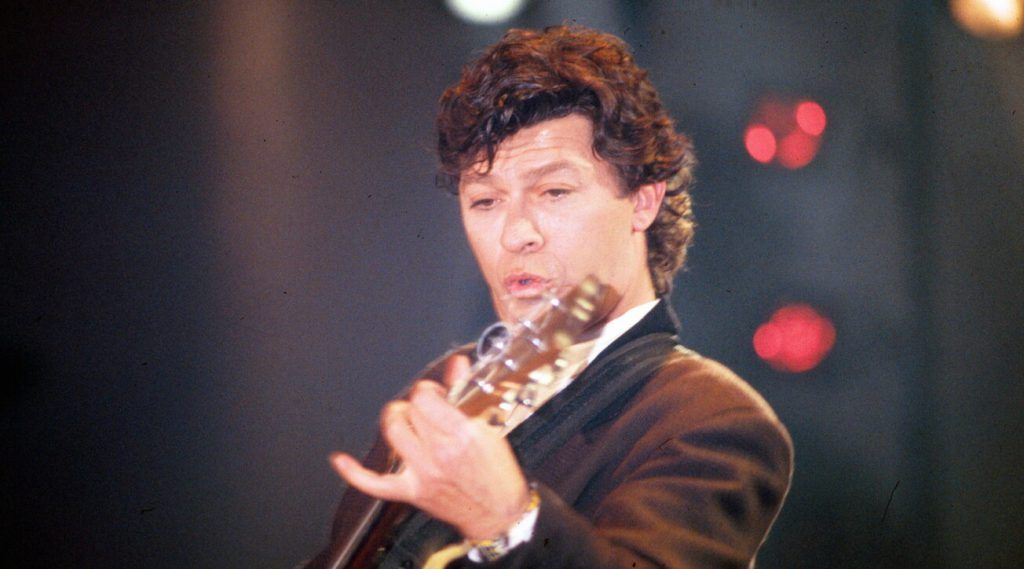
Rolling Stone, “Robbie Robertson, Master Storyteller Who Led the Band, Dead at 80“
ROBBIE ROBERTSON, THE Band’s guitarist and primary songwriter who penned “The Weight,” “The Night They Drove Old Dixie Down,” “Up on Cripple Creek,” and many other beloved classics, died Wednesday at age 80.
Robertson’s management company confirmed the musician’s death. “Robbie was surrounded by his family at the time of his death, including his wife, Janet, his ex-wife, Dominique, her partner Nicholas, and his children Alexandra, Sebastian, Delphine, and Delphine’s partner Kenny,” his longtime manager Jared Levine said in a statement. “In lieu of flowers, the family has asked that donations be made to the Six Nations of the Grand River to support the building of their new cultural center.”
The Band only lasted eight years after the release of their 1968 debut LP, Music From Big Pink, but during that time they forever changed the pop-culture landscape by releasing brilliant Americana music at the peak of the psychedelic movement. Their first album sent shockwaves through the industry, inspiring Eric Clapton to break up Cream, the Beatles to attempt their own stripped-back project with Let It Be, and a pair of young British songwriters named Elton John and Bernie Taupin to begin writing and recording their own material.
Robertson took on the role as the group’s leader, writing the majority of their songs and pushing them forward when substance abuse issues and infighting threatened their existence. It was also his decision to pull the plug on the group in 1976 when he couldn’t take it anymore, setting the stage for their legendary farewell concert The Last Waltz.
“The road has taken a lot of the great ones,” he said at the time. “Hank Williams, Buddy Holly, Otis Redding, Janis, Jimi Hendrix, Elvis. It’s a goddamn impossible way of life.”
Before the Band began making their own music, Robertson was one of Bob Dylan’s key collaborators, playing guitar on Blonde on Blonde and convincing the songwriter to hire the other members of his group as his backing band. They toured the world in 1965 and 1966, facing a torrent of boos by enraged folk purists. “His friends, his advisors, and everyone told him to blow us off and start from scratch,” Robertson said in 1987. “And it took a tremendous amount of courage for him not to do that.”
Variety, “Robbie Robertson, Leader of The Band, Dies at 80“
Guitarist-songwriter-singer Robbie Robertson, who led the Canadian-American group the Band to rock prominence in the 1970s and worked extensively with Bob Dylan and Martin Scorsese, has died. He was 80.
[…]
After the Band’s 1976 farewell concert “The Last Waltz” was captured on film by Scorsese, Robertson worked with the director as composer, music supervisor, and music producer starting in 1980 on films including “Raging Bull,” “The King of Comedy,” “The Color of Money,” “Gangs of New York,” “The Departed,” “Shutter Island,” “The Wolf of Wall Street,” “Silence,” “The Irishman” and “Killers of the Flower Moon.”
However, he is best known for the classic songs he wrote for the Band, including “The Weight,” “Up on Cripple Creek,” “The Night They Drove Old Dixie Down,” “The Shape I’m In” and “It Makes No Difference.” His story with The Band was captured in the 2019 documentary “Once Were Brothers.“
Robertson did what turned out to be his final interview just two weeks ago with Variety, talking about his 55 years of collaborating with Scorsese, on up through “Flower Moon,” which is set to come out later this year. “We’re in awe ourselves that our brotherhood has outlasted everything,” he said of his work with the director. “We’ve been through it; we’ve been there and back. I am so proud of our friendship and our work. It’s been just a gift in life.” (The interview will run in full at a later date.)
The singer-songwriter-guitarist was just 16 when he joined the Hawks and the group began apprenticing as American rockabilly singer Ronnie Hawkins’ backup unit. Robertson and his bandmates – drummer Levon Helm, bassist Rick Danko, pianist Richard Manuel and organist Garth Hudson – struck out on their own in 1964.
The Hawks served as Bob Dylan’s forceful touring band (minus Helm for most dates) during the singer-songwriter’s tumultuous first electric tour of 1965-66; they reunited with their dissident percussionist during famed, much-bootlegged informal recording sessions with Dylan, known as the “basement tapes,” in 1967.
Signed to Capitol Records in 1968, the rechristened Band shot to fame with its first two albums, “Music From Big Pink” and “The Band,” which drew from a heady stream of American music tributaries and would influence both contemporaries like Eric Clapton and George Harrison and succeeding generations of American roots musicians.
Speaking of the bedrock of the Band’s sound with journalist Paul Zollo, Robertson said, “I always thought, from the very beginning, that this music was born of the blues and country music, Southern stuff. The Mississippi Delta area, and the music came down from the river and from up the river and met, and it made something new. I always looked at that as kind of the source of the whole thing.”
He wrote sensitively for the distinctive, often layered voices of the musically versatile multi-instrumentalists Helm, Danko and Manuel, and by the group’s third album he became its principal songwriter.
The act rose to superstardom in the early ‘70s, in part thanks to renewed collaborative work with Dylan (including a sold-out 1974 tour and the No. 1 album “Planet Waves”) and appearances at the storied Woodstock, Isle of Wight and Watkins Glen festivals.
However, the Band began to flag creatively in the mid-‘70s due to its members’ escalating substance abuse problems, and Robertson effectively disbanded the group with an extravagant, all-star Thanksgiving 1976 concert at San Francisco’s Winterland, “The Last Waltz”; Martin Scorsese’s 1978 documentary about the event effectively became the group’s epitaph, though they reunited without Robertson during the ‘90s.
Robertson went on to a sporadic solo career; dabbled in acting and screenwriting (on the 1980 feature “Carny”); took a record company A&R job; and enjoyed a long creative relationship with Scorsese on many of the director’s subsequent dramatic features.
He was inducted with his band mates into the Canadian Juno Hall of Fame in 1989 and the Rock and Roll Hall of Fame in 1994. He received a Lifetime Achievement Award from the National Academy of Songwriters in 1997.
New York Times, “Robbie Robertson, 80, Dies; Canadian Songwriter Captured American Spirit“
Robbie Robertson, the chief composer and lead guitarist for the Band, whose work offered a rustic vision of America that seemed at once mythic and authentic, in the process helping to inspire the genre that came to be known as Americana, died on Wednesday in Los Angeles. He was 80.
[…]
The songs that Mr. Robertson, a Canadian, wrote for the Band used enigmatic lyrics to evoke a hard and colorful America of yore, a feat coming from someone not born in the United States. With uncommon conviction, they conjured a wild place, often centered in the South, peopled by rough-hewed characters, from the defeated Confederate soldier in “The Night They Drove Old Dixie Down” to the tough union worker of “King Harvest Has Surely Come” to the shady creatures in “Life Is a Carnival.”
The music he matched to his passionate yarns mined the roots of every essential American genre, including folk, country, blues and gospel. Yet when his history-minded compositions first appeared on albums by the Band in the late 1960s, they felt vital as well as vintage.
[…]
Speaking of the Band in the 2020 documentary “Once Were Brothers,” Bruce Springsteen said, “It’s like you’d never heard them before and like they’d always been there.”
The ripple effect of that sound and image — unveiled on the Band’s first album, “Music From Big Pink,” released in 1968 — went wide on impact, landing the group on the cover of Time magazine in 1970 and inspiring a host of major artists to create their own homespun amalgams, from the Grateful Dead’s album “American Beauty” (1970) to Elton John’s “Tumbleweed Connection,” released the next year.
The Band’s music so affected Mr. Robertson’s fellow guitarist Eric Clapton that he lobbied for entry into their ranks. (The offer was politely declined.) A quarter-century later, the Band’s music provided a key template for the acts first labeled Americana, including Son Volt, Wilco and Lucinda Williams, as well as for their sonic heirs.
Though Mr. Robertson dominated the Band’s writing credits, he frequently emphasized the importance of all five members. “Everybody did something that raised the level of what we were doing to a stronger place,” he told The Guardian in 2019. “They’re all unique characters you could read about in a book,” he told Musician magazine in 1982.
Washington Post, “Robbie Robertson, guitarist and songwriter of the Band, dies at 80“
Robbie Robertson, a Canadian guitarist and songwriter with the influential folk-rock group the Band who crafted some of its enduring hits including “The Weight” and “The Night They Drove Old Dixie Down,” and then led a farewell concert in 1976 chronicled in Martin Scorsese’s film “The Last Waltz,” died in Los Angeles at 80.
[…]
Mr. Robertson was widely credited with helping forge a music genre known as Americana that brought together folk, country and rock and leaned heavily on traditions of storytelling and sense of place, contrasting with the emerging psychedelic sound in the 1960s.
The throwback sensibilities of the Band’s music carried influences of some of Mr. Robertson’s early collaborators, including Bob Dylan, and helped inspire bands such as the Grateful Dead with “Workingman’s Dead” (1970) and Elton John’s “Tumbleweed Connection” (1971) with songs of struggles, lean times and simple pleasures.
“We just went completely left when everyone else went right,” Mr. Robertson once said.
The Band stayed together eight years after their debut album, “Music from Big Pink,” in 1968 but left a profound mark on popular music and songwriting, building tales that often took listeners on journeys of love or anguish. “The Night They Drove Old Dixie Down” is the lament of a Confederate soldier staring defeat in the face. Mr. Robertson’s 1969 song “Up on Cripple Creek” is delivered from the point of view of a truck driver heading to Louisiana to see his lover.
“The Weight” is full of allusions to burdens and quests for redemption, which Mr. Robertson said was influenced by the surrealist style of Spanish film director Luis Buñuel and themes about the sacred and profane.
“I wanted to write music that felt like it could’ve been written 50 years ago, tomorrow, yesterday — that had this lost-in-time quality,” Mr. Robertson said on the PBS documentary “Shakespeares in the Alley” aired in 1996.
[…]
Mr. Robertson is often portrayed as the catalyst for the Band’s breakup, suggesting that he was eager for a solo career. But the bad blood with Helm was there for all to see. Helm laid the blame squarely on Mr. Robertson in his 1993 autobiography, “This Wheel’s on Fire,” and refused to appear at the group’s 1994 Rock and Roll Hall of Fame induction. The Band reunited for three albums in the 1990s, but without Robertson. (Garth Hudson is now the last surviving original member of the Band.)
The breakup was everyone’s doing, Mr. Robertson told the Canadian interview show “George Stroumboulopoulos Tonight.” “This was five men making a decision,” he said. “It wasn’t my decision. And whatever happened it would happen because of every one of us. If one of those pistons wasn’t working perfectly, then everything was off kilter.”
While I’ve been listening to The Band’s songs for as long as I can remember, I don’t think I knew the name of Robertson or any of the others until watching “The Last Waltz” documentary with my late first wife a dozen or so years ago. There was a lot of tension over the breakup and anger, from Helm especially, over the film’s portrayal of Robertson as the leader. (It was, after all, known as “Levon and the Hawks” at one point in their evolution.) But, as the above-quoted stories show, that image stuck and with good reason. While Helm’s iconic vocals were perhaps the most distinctive element of the group’s sound, it was Robertson who wrote the songs.
While I vaguely knew that he’d continued collaborating with Scorsese on other projects since, it wasn’t until this morning that I learned the extent.
Further, while I’m a big fan of the “Americana” genre, I never previously attributed it to The Band, since the term wasn’t in widespread usage until the 1990s. But, certainly, they’re a great fit into that category.

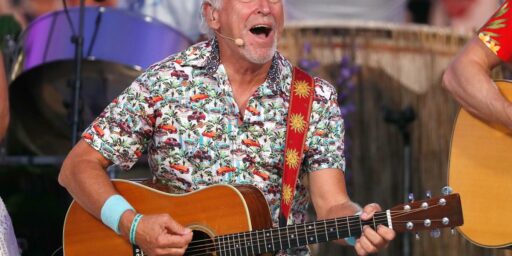
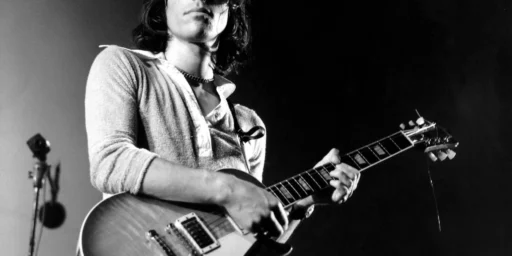
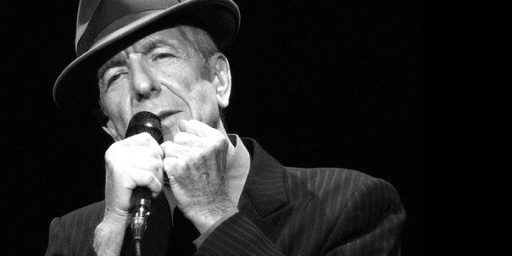
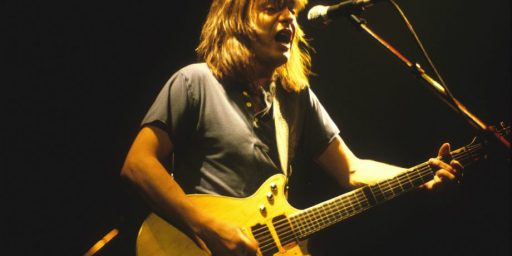
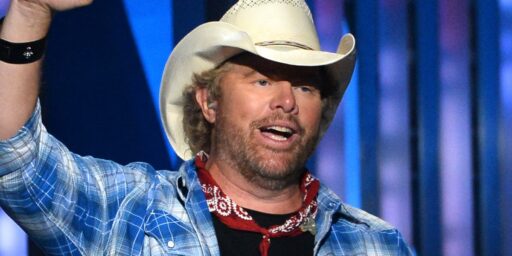
He joined the Hawks, Dylan’s back-up band, at the age of 16.
After the Band he had a bunch of outstanding solo albums.
RIP, Robbie. Where you are going they have one heck of a band.
My introduction to The Band was from the opposite direction. When I was 14 or so, late ’90s I think, I really only knew them as having a single song that got some play time on classic radio, and thought it was pretty clever that a “one hit wonder” would have the audacity to call themselves just “The Band.”
Then I was driving and some song on the radio had the lyrics “Richard Manuel is dead.” I thought “who the hell is Richard Manuel? Never heard of him, but some guy’s writing a song dedicated to him as if we all know this fella?” Pulled up yahoo or whatever search engine was popular pre-Google and went down a rabbit hole. Bought all their albums at a time when you still had to do that, then a guitar, then a mandolin after I heard their version of “Atlantic City.”
The podcast “Rivals” had a great episode about Helms and Robertson’s partnership and feud.
This seems a good thing to remember him by.
@Neil Hudelson:
Have you heard Helm’s “Ramble at the Ryman”? Fantastic.
And he was genius in “The Shooter.”
The Band’s greatest hits have been playing on a loop at my house since Robbie died.
It’s amazing that four Canadians and an American could write so well about the American South. “The Night They Drove Old Dixie Down” is one of the great songs in history. It’s a better tale about the reality fo the Civil War than pretty much any other song. And it was written by a freaking Canadian.
RIP Robbie.
@Daryl:
A few songs from “Ramble” pop up in Spotify’s algorithm, but I confess I hadn’t clicked through to the album yet.
I hadn’t realized “Music from the Big Pink” was the trigger for Clapton to break up Cream (I had always heard it was tensions between all three, but more so Bruce and Baker that caused it). Regardless, the next year saw Clapton with not a lot to do but a lot of talent to do it with. He joined Delaney & Bonnie on their drug-fueled, whirlwind 2-year tour featuring, at various times, most of the Wrecking Crew, dozens of guest appearances by a Who’s Who of 60s and 70s. Leon Russell joined them for part of the tour (I believe the tour was initially his idea) and he was so taken with the bacchanalian excess that it fueled him to push forward his and Joe Cocker’s Mad Dogs and Englishmen Tour, which itself has become legendary for out of control drug use. The musical partnerships formed between wrecking crew members and other musicians on these tours led to numerous classic albums and bands–Derek and the Dominos, Harrison’s “All Things Must Pass,” Rita Coolidge’s career, etc. etc. The deluxe album of the first tour–“On Tour with Eric Clapton”–is just phenomenal.
All the insanity and drug use of those two tours–first Delaney & Bonnie and then Joe Cocker–really did a number on the already fragile psyche of one Wrecking Crew member Jim Gordon, a wickedly talented, soft spoken percussionist. While many people on the tour later struggled with drug abuse, Gordon really suffered. By the 80s, when he wasn’t a barely-functioning alcoholic, he battled heroin addiction. He would get clean from that with the help of alcohol. A vicious cycle ensued and he surely wasn’t seeking treatment for his spiraling mental health. One night in 1983 his mother answered a knock at the door in the late evening. It was her son Jim, whom she had talked on the phone with recently, but who she had not seen in person in many weeks following a fight between them. He stabbed her numerous times in her living room, killing her. At his trial, he was diagnosed with acute paranoid schizophrenia.
When I was in high school I was able to snag tickets to see The Band at the Oakland Paramount. But then that show was cancelled, because they decided they wanted to break up, and ticket holders were able to trade them in for tickets to the farewell show they would be playing at Winterland. Which is how I ended up spending Thanksgiving, 1976 at the Last Waltz.
The movie is magical, but being there was amazing. I’d been waiting years to see Dylan and that was finally my chance. But even more impressive was the tubby little guy everyone seemed to recognize but me. When Van Morrison started to sing Caravan, it was life-changing.
@wr: Absolutely amazing. What a once-in-a-lifetime treat.
@wr:
OK…now I’m jealous…
@Neil Hudelson: @Daryl: @wr:
WR. So so so so so jealous.
@wr:
That’s amazing. I think Robbie Robertson selected all of the songs for Scorsese’s films…there’s a Van Morrison cover of Pink Floyd’s Comfortably Numb used for the love scene in The Departed which is about as perfect as can be, and that has to be his choice.
My favorite of all The Band’s music has to be when they’re playing with Dylan on The Basement Tapes.
And speaking of someone else who just died–I rewatched William Friedkin’s Sorcerer and man that movie…holy hell.
Levon Helm didn’t have much that was kind to say about Robbie Robertson. Mostly he said that Robertson took credit for the rest of The Band’s members contributions to songwriting.